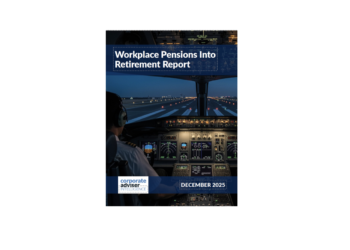Pension schemes face increasing pressure to act on climate change, but with limited resources, a strategic approach is key, says the Trustee Sustainability Working Group (TSWG).
TSWG is a new coalition of leading trustee firms aiming to enhance stewardship practices, influence regulators, and drive sustainable investment. It focuses on improving fund manager engagement, streamlining reporting requirements, and advocating for more practical climate scenario modelling. The group seeks to accelerate meaningful action on sustainability, particularly for small and mid-sized schemes, while fostering industry-wide progress in transition planning and risk discussions.
According to the group, large schemes typically have dedicated staff and governance structures, medium schemes rely on multiple advisers, while smaller schemes often operate through pooled funds with minimal capacity. Regardless of size, it says that all schemes must address climate risk as temperatures exceed the 1.5°C threshold.
TSWG urges large schemes to collaborate on climate modelling and says: “Numerous publications have pointed toward the fact that most climate modelling that has been performed by pensions schemes, using traditional ALM techniques is not fit for purpose. These schemes, as long as they understand the climate problem, should challenge their consultants on the need for redoing any of that climate modelling and, instead, use the narrative that is allowed in legislation and direct resources elsewhere.”
The industry may also replace TCFD reporting with transition plans to simplify climate, biodiversity, and social disclosures. It says that large schemes should engage in these discussions to drive improvements.
Additionally, the TSWG encourages trustees of medium-sized schemes to carefully evaluate ESG credentials when choosing managers, making sure that policies prioritise actual impact above box-checking. Urgent challenges should be addressed in climate and nature voting policies without imposing needless reporting requirements. Best practices from larger projects can also be incorporated into medium-sized schemes.
Smaller schemes frequently have trouble with voting and stewardship reporting since they depend on pooled funds and have fewer resources. The TSWG advises strong collaboration with advisers during the assessment of small scheme reporting requirements. A new effort seeks to help them change corporate decisions by amplifying their voice on important problems at no expense. Trustees should remain informed and seek advice from the TSWG.
The TSWG emphasises that, as climate risks grow, pension schemes must take focused, efficient, and impactful action. Whether through better ESG integration, targeted voting policies, or streamlined reporting, trustees should prioritise practical solutions that drive real change.





